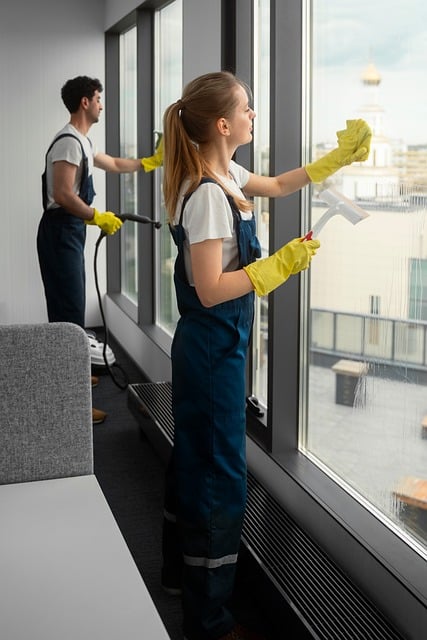A Steady Guide to Cleaning Services: Clear Tasks and Convenient Daily Routines
Cleaning services form a vital part of modern life, supporting homes, offices, hospitals, and public spaces worldwide. Whether you are seeking to understand this field or curious about what it involves, exploring the daily tasks, safety measures, and typical career structures can provide valuable insight. This guide examines the nature of cleaning work, the responsibilities involved, and what characterizes this practical occupational category with its varied scheduling patterns.

Cleaning work represents a straightforward occupational category, with roles existing across multiple sectors including residential, commercial, healthcare, and industrial settings. The field is characterized by consistent demand for services. Many positions have minimal formal education requirements, though training in safety protocols and specialized cleaning techniques can be valuable for skill development.
Clear Duties, Safe Environments, and Flexible Hours
Cleaning roles typically involve a defined set of tasks that vary by setting. In residential cleaning, duties often include vacuuming, dusting, mopping floors, sanitizing bathrooms and kitchens, and organizing spaces according to client preferences. Commercial cleaning extends to larger facilities such as office buildings, retail stores, and schools, where workers may operate floor buffers, carpet cleaners, and industrial vacuum systems. Healthcare and industrial cleaning require additional expertise in handling biohazards, chemical agents, and adhering to strict sanitation standards. Scheduling patterns vary widely, with positions ranging from part-time to full-time, and including evening or weekend shifts depending on the specific role and employer.
Safety and Compliance Are Also Essential
Safety protocols form the foundation of professional cleaning work. Workers must understand proper handling and storage of cleaning chemicals, many of which can be hazardous if misused. Personal protective equipment such as gloves, masks, and eye protection is standard in many environments, particularly in healthcare and industrial settings. Compliance with local health and safety regulations is typical, and training often covers Material Safety Data Sheets, proper ventilation, and emergency procedures. Ergonomic practices are equally important to prevent repetitive strain injuries, given the physical nature of tasks like lifting, bending, and prolonged standing. Understanding these safety measures protects workers and supports quality service delivery.
Career Progression in Cleaning Work Is Realistic
While entry-level cleaning positions generally require minimal qualifications, various career pathways exist within the field. Experienced cleaners may move into supervisory roles, overseeing teams and coordinating schedules across multiple sites. Specialization in areas such as carpet care, window cleaning, or hazardous material removal represents another direction. Some workers transition into facility management, where they coordinate maintenance, cleaning, and security services for large properties. Entrepreneurial individuals may establish their own cleaning businesses, building client bases in residential or commercial markets. Continuous learning through certifications in green cleaning practices, infection control, or equipment operation can enhance professional knowledge and skills.
Understanding Compensation in Cleaning Services
Compensation in cleaning services varies widely based on location, experience, specialization, and employment type. The field encompasses a range of compensation structures, from hourly wages for employed workers to variable pricing for self-employed individuals. Understanding typical compensation patterns can help set realistic expectations about this occupational category.
| Role Type | Typical Hourly Range | Additional Considerations |
|---|---|---|
| Residential Cleaner | $12 - $20 | Tips and repeat clients can supplement income |
| Commercial Cleaner | $13 - $22 | Night shifts may offer differential pay |
| Healthcare Facility Cleaner | $15 - $25 | Specialized training and certifications required |
| Supervisor/Team Lead | $18 - $30 | Includes management responsibilities |
| Self-Employed Cleaner | $25 - $50+ | Variable based on client base and services offered |
Prices, rates, or cost estimates mentioned in this article are based on the latest available information but may change over time. Independent research is advised before making financial decisions.
Benefits packages vary by employer, with larger companies more likely to offer health insurance, paid time off, and retirement plans. Part-time and contract workers may receive fewer benefits but enjoy greater schedule flexibility. Geographic location significantly impacts compensation patterns, with urban areas and regions with higher costs of living typically showing different wage structures.
Preparing for Success in Cleaning Roles
Succeeding in cleaning work requires a combination of practical skills, reliability, and attention to detail. Punctuality and consistency are valued attributes, as clients and employers depend on scheduled services. Physical fitness helps manage the demanding nature of the work, which often involves prolonged activity and lifting. Developing strong communication skills enables workers to understand client expectations, address concerns, and work effectively within teams. Basic problem-solving abilities assist in adapting to different environments and handling unexpected challenges such as equipment malfunctions or supply shortages. For those entering the field, starting with reputable employers or agencies can provide valuable training and structured work arrangements.
Cleaning services continue to evolve with technological advancements and growing emphasis on environmentally responsible practices. Green cleaning products, energy-efficient equipment, and sustainable waste management are increasingly common. Workers who stay informed about industry trends and pursue relevant training can develop their skills in this essential occupational field. Whether as a temporary role or a long-term profession, cleaning work involves tangible responsibilities including maintaining clean, safe spaces for communities worldwide.




